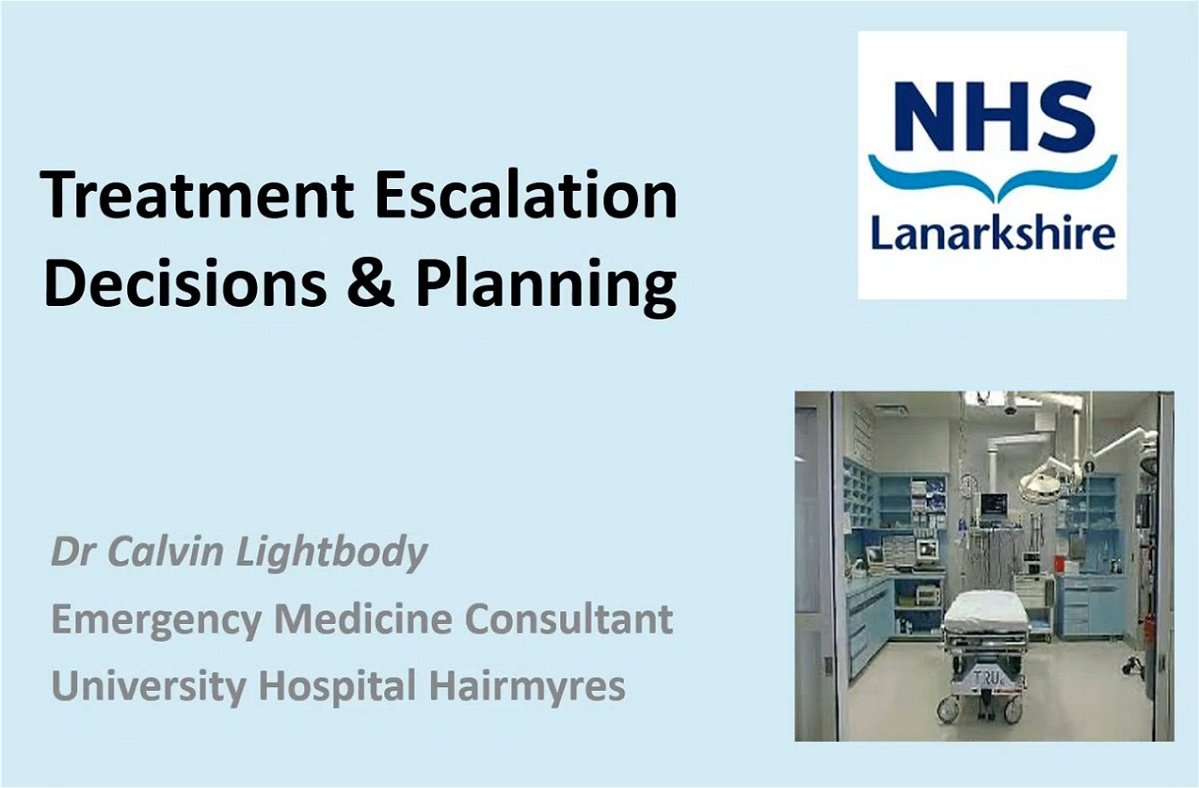Treatment Escalation Plans
TREATMENT ESCALATION PLAN (TEP)
A Treatment Escalation Plan (TEP) is a communication tool which is helpful in hospital when a person with serious illness has the potential for acute deterioration or may be coming towards the end of their life. The key objective is to minimise the risk of non-beneficial or unwanted medical interventions being carried out. TEP was formerly referred to as a Hospital Anticipatory Care Plan (HACP) and is now the universally accepted term.
What can be done and what should be done are not necessarily the same thing. Indeed, protocol driven or "one size fits all" medicine can lead to more suffering and distress, not less.
Making a TEP is also an opportunity for patients (and their loved ones) to communicate their treatment preferences and express what matters most to them. Personalised “goals of care” can be discussed and documented.
Crucially, a TEP provides on-call hospital staff with immediately accessible guidance about how to respond to an individual in times of crisis, especially out of hours and at weekends. In many patients who may have an agreed DNACPR, a TEP clarifies all the treatments and care that should continue.
TEP Form
Note: this is only accessible when connected to the NHS Lanarkshire Network
The TEP form can be accessed at following link: TEP Form
The completed form should be filed at the front of the patient's hospital record along with the DNACPR form (if one exists).
GOALS OF CARE
Describing the individualised goals of care is a key part of making a TEP. For a patient at risk of deterioration after admission there can be 1 of 3 possible goals:
- Full Escalation – It is anticipated that the patient could make a full recovery and all treatments including ITU referral and CPR should be considered.
- Selective Treatment – Attempt to reverse the acute process but describe which interventions would not be of benefit or would be inappropriate for this individual patient. Assess progress and review options regularly.
- Palliative Treatment – It is recognised that the patient is approaching the end of life. Focus should be on symptom control and comfort measures.
Note that any goal is not fixed or unchangeable. If the patient's condition changes or new information comes to light then the goal can be reviewed and a fresh TEP made.
GUIDANCE NOTES
There are guidance notes on each form which cover medico-legal and ethical matters as well as practical.
TEP - THE EVIDENCE
There is a compelling case for the consistent use of TEP for patients who might be in the last year of life.
Treatment Escalation Plan (TEP) - Communication Guidance
Dr Calvin Lightbody, Emergency Medicine Consultant, University Hospital Hairmyres
15 mins
In severe illness quality of care becomes more important than ever but the goals of treatment are different for different people. Hospital care is becoming more and more complex and both patients and their families are particularly vulnerable to the impact of errors, harms and poor communication. It is especially important for hospital staff to understand and respect the values and preferences of the people they are looking after and to discuss with them a plan for emergencies.
Knowing how the plans should be sensitively discussed and used is important.
This video provides a framework for the discussion along with some tips on handling difficult conversations.

OTHER HELPFUL INFORMATION AND RELATED RESOURCES

